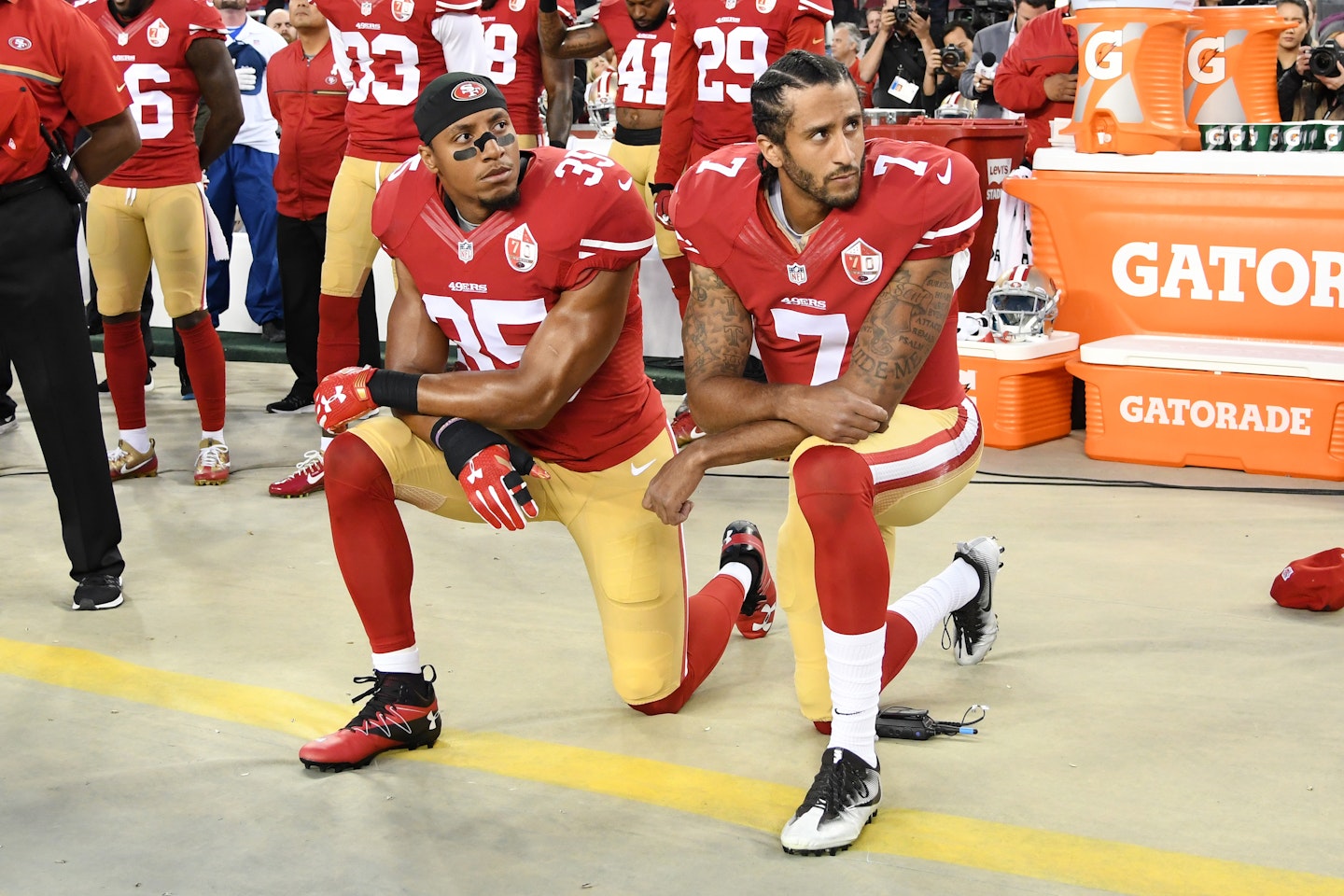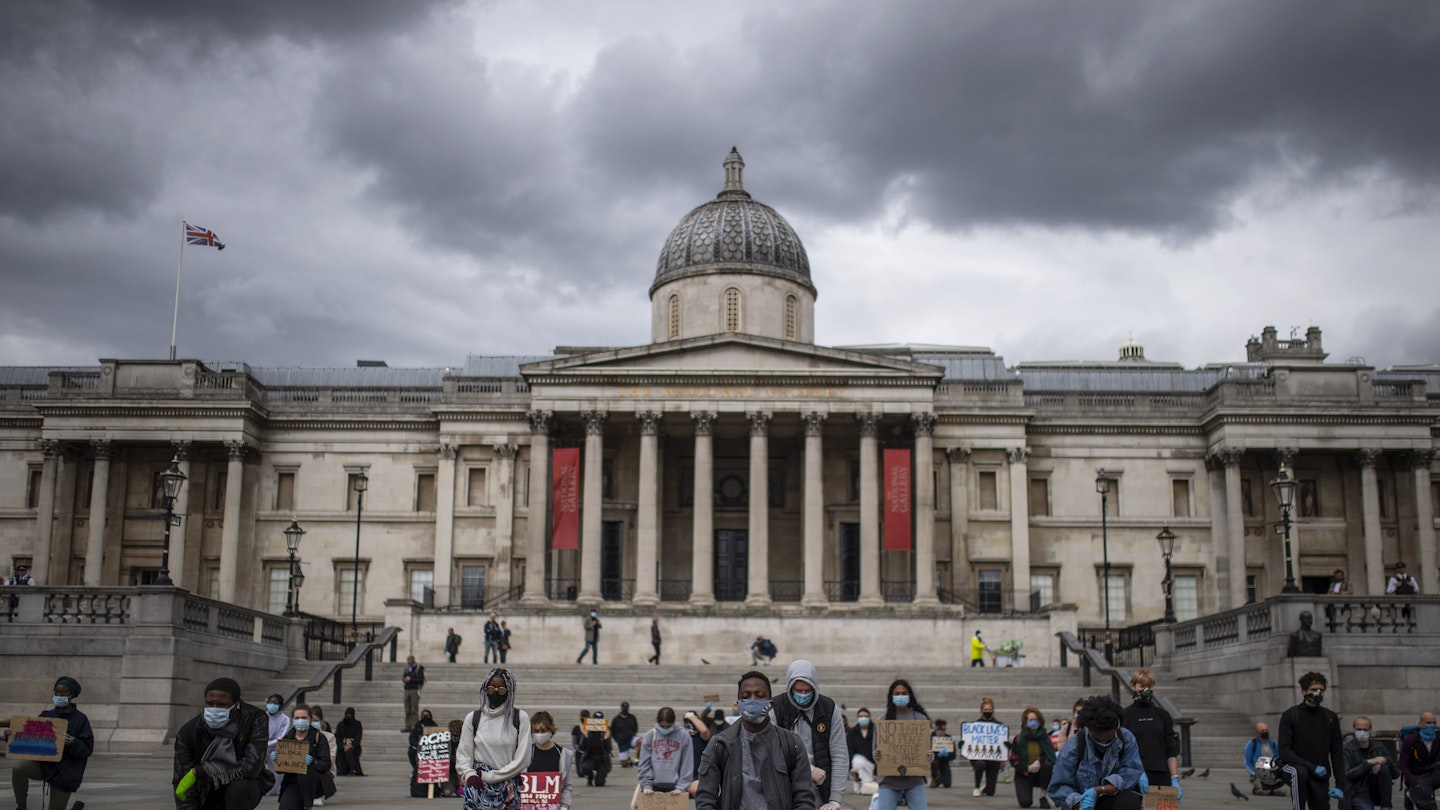Foreign secretary Dominic Raab has said he would never take a knee in support of the Black Lives Matter movement, saying that he doesn’t know what taking a knee is all about and assumes it comes from ‘The Game of Thrones’.
Asked about whether he would show up for black people fighting racial injustice in this country by taking a knee in solidarity he told Talk Radio: ‘I take the knee for two people; the Queen and the Mrs when I asked her to marry me.’
‘I understand this sense of frustration and restlessness that it driving the Black Lives Matters [sic] movement,’ he added, before admitting he’s never taken the time to understand where it comes from.
‘I've got to say, on this taking a knee thing, I don't know, maybe it's got a broader history but it seems to be taken from The Game of Thrones,’ he said. ‘[It] feels to me like a symbol of subjugation and subordination rather than one of liberation and emancipation. But I understand people feel differently about it so it's a matter of personal choice.’
Where did taking a knee come from?
Actually, taking a knee is a much more recent phenomenon than the fictional timeline of 297 AC when Game of Thrones is set (which, while AC is not a real era in history, mimics medieval times in its themes and references to noble families). The act to take a knee in sign of protest was started by American NFL player Colin Kaepernick in 2016 when he kneeled during the national anthem.
Kaepernick, who was also protesting racial injustice, police brutality and systemic oppression in the US, had spent two weeks sitting during the national anthem but after receiving no media attention as to why he was refusing to stand, he decided to take a knee instead. Only then did people begin asking questions about his choice.

‘I am not going to stand up to show pride in a flag for a country that oppresses black people and people of colour,’ Kaepernick told NFL Media. ‘To me, this is bigger than football and it would be selfish on my part to look the other way. There are bodies in the street and people getting paid leave and getting away with murder.’
Since Kaepernick’s act, taking a knee has become a widespread symbol of peaceful protest against racism and police brutality.
‘Colin Kaepernick started one of the most visible protests for social justice in modern sports history,’ one research paper, Taking a Knee, reported in 2018. ‘He gathered the attention of fans and non-fans alike, now sitting—or kneeling—at the centre of a major political controversy. Kaepernick is no longer in the NFL, yet his name remains attached to what have been called the “Take a Knee” protests against systematic racism and the treatment of minorities in the U.S. (including their deaths at the hands of police and their disproportionate incarceration rates).
‘His effort, and its backlash, echoes the iconic “Black Power Salute” offered by American runners Tommy Smith and John Carlos on the Olympic podium after medalling in the 200-meter race in the 1968 Summer Games,’ the authors concluded.
And while Raab may believe the protest act is sign of ‘subjugation’, the would be a very simplistic view, according to experts.
‘At first glance, research into emotion and nonverbal communication suggests that there is nothing threatening about kneeling. Instead, kneeling is almost always deployed as a sign of deference and respect,’ psychologist Dacher Keltner wrote for Scientific American. ‘But there is an important point of similarity in the raised black-power fist—which makes bodies bigger—and the bended knee, which makes us smaller. Both Carlos and Smith bowed their heads in Mexico City, in a sign of respect and humility that accompanies their social signal of strength and triumph. That mix of messages makes the black-power salute one of the most famous, complex, effective nonverbal protests in our lifetimes—one that we can see echoed on today’s football field.’
By transforming this ritual, the players woke us up.
Keltner explains that while kneeling alone is a sign of reverence, Kaepernick invested in it a double meaning because of his choice to do it during the playing of the national anthem. Rather than turning his back, which would have been a true sign of respect, or rely on the black-power fist, he ‘transformed a collective ritual into something sombre.’
‘[It was] a reminder of how far we still have to go to realize the high ideal of equal protection under the law that the flag represents,’ says Keltner. ‘The athletes who followed him are showing reverence for the song and the flag, but they are simultaneously deviating from cultural norms at the moment their knees hit the grass. By transforming this ritual, the players woke us up. Our amygdalae activate as soon as our brains spot deviations from routine, social norms, and in-group tendencies. We want to know what’s happening and why.’
So, while Raab may not understand it or want to show solidarity with those fighting against racism, many clearly see the power taking a knee has. It seems this is another case of maybe-do-your-research-before-going-on-live-radio-to-compare-one-of-the-most-famous-moments-in-civil-rights-history-to-a-scene-in-Game-of-Thrones. Or ‘The Game of Thrones’ we should say. If there has been one defining lesson of the last few weeks, it’s to read a book before you open your mouth.
Read More:
Writing To Your MP To Support Black Lives Matter: How To Do It, What To Say And Why You Should
